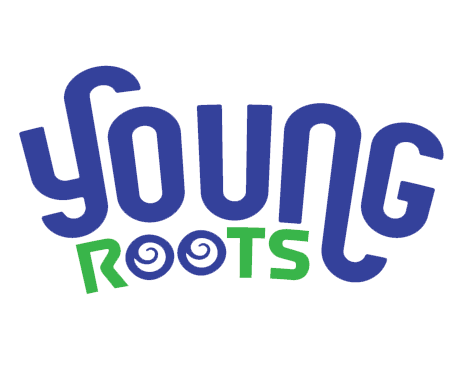
Introducing your baby to solid foods is a huge milestone. However, knowing where to start, what nutrients your baby needs, and what foods are safe can be overwhelming.
In this article, we’ll explore when babies can start eating finger foods, what finger foods are safe and nutritious, the essential nutrients in baby food, and concerns surrounding baby cereal and cow milk.
When Can Babies Eat Finger Foods?
Parents usually start introducing baby finger foods to their babies at around six months of age. However, it’s important to keep in mind that each baby develops at their own pace, and there is no fixed age at which they are ready for finger foods.
It’s essential to observe specific developmental cues, which typically appear when the baby is between 7 to 10 months old, to ensure they are ready for this next step in their feeding journey.
- Have strong head and trunk control
- Can sit upright completely with minimal assistance (babies who slump are far more likely to choke).
- Display the pincer grasp (babies cannot take up small pieces of food until this grasp develops).
- Bring their hands to their mouth on purpose
- Can mash soft food between the gums
- Being curious about food and reaching toward your plate
What Baby Foods Can Babies Eat?
Now that you know when to start finger foods, you may be curious about what to give your baby. The best baby finger foods are small, soft, nutritious, and easy to chew.
There are numerous baby finger foods that can help them learn to feed themselves while fulfilling their nutritional needs. Some of them include the following:
1. Vegetables
- Roasted sweet potato
- Steamed peas
- Zucchini
- Butternut Squash
- Steamed broccoli or cauliflower
- Roasted red bell peppers
Before feeding vegetables to your infant, make sure they are soft (either by roasting or boiling) and cut them into little pieces. Giving your baby raw veggies might cause choking.
2. Fruits
- Raspberries
- Blueberries
- Strawberries
- Banana
- Avocado
- Peach
- Mango
- Watermelon
Make sure to choose ripened fruits and cut them into little pieces.
3. Proteins
- Eggs (scrambled and broken up into small pieces)
- Tofu (steamed and diced)
- Chicken or other meat (either broken up into small pieces or shredded)
- Shredded cheese
- Salmon (cooked and flaked)
- Lightly mashed beans
4. Carbohydrates
- Rice (well-cooked and formed in a ball shape)
- Pasta (well-cooked and small pieces)
- Bread (lightly roasted and sliced into little pieces or thin strips)
- Muffins (diced)
- Puffs and O-shaped dry cereal
- Pancakes (cut into thin slices)
What Are The Most Important Nutrients In Baby Food?
As a parent, you might wonder what essential nutrients your baby needs. Here are some nutrients that can help with your baby’s growth and development:
1. Iron
Iron is an essential nutrient. It helps transport oxygen throughout the body as an element of haemoglobin, a component found in red blood cells. Babies typically have enough iron stored in their bodies during their first few months of life, but this supply runs out after 5-6 months.
While breast milk and iron-fortified formulas provide some iron, you should introduce solid foods to ensure your baby gets the recommended 11 milligrams of iron daily. Therefore, it’s essential to include iron-rich foods in a baby’s diet to avoid anaemia and support healthy development.
Iron-rich solid foods for newborns include the following:
- Beans
- Iron-fortified cereals
- Whole grains
- Spinach
- Broccoli
- Apricots
- Meat
- Chicken
- Eggs
2. Omega 3 fatty acids
Consuming omega-3 fatty acids, specifically DHA and EPA, is essential for overall health and can help support the growth and development of your baby’s brain, eyes, and immune system. Since the body cannot produce these vital nutrients, you must ensure your baby consumes enough of them through solid foods.
You can introduce oily fish such as salmon, a great source of these unsaturated fats, to your baby’s diet around six months. Other sources of omega-3 fatty acids include:
- Flaxseeds
- Chia seeds
- Walnuts
- Soya beans
- Tofu
- Hemp seeds
- Omega-3-rich eggs
3. Protein
Protein is essential for your baby’s growth and development since it plays a vital role in building, maintaining, and repairing body tissues. Every cell in a baby’s body contains protein, which is made up of amino acids – some of which are “essential” and cannot be produced by the body.
Breast milk and iron-fortified formula provide the right amount of protein for babies. However, after 5-6 months of age, it is crucial to ensure that your baby’s food contains enough protein to support healthy growth and development.
There are several protein-rich foods available when your baby starts solid foods. Some of them include the following:
- Chicken
- Meat
- Fish
- Eggs
- Dairy
- Nuts
- Seeds
- Whole grains
- Legumes
- Spinach
- Sweet potatoes
- Sweet corn
- Avocado
Make sure your baby receives protein from a variety of sources.
4. Calcium
Calcium is vital for babies since it helps build strong bones and teeth. It also supports muscle function, nerve signalling, and blood clotting. Adequate calcium intake during infancy is essential for laying the foundation for optimal bone health in later life.
Calcium deficiency can lead to impaired bone and teeth development, muscle weakness, and increase the risk of developing rickets.
Infants under six months need 200 mg of calcium daily, while those aged between 6 to 11 months need 260 mg daily. Calcium-rich foods include the following:
- Eggs
- Oranges
- Fish
- Sweet potatoes
- Broccoli
- Spinach
- Green peas
- Pulses
- Lentils
- Almonds
5. Vitamin D
Vitamin D is crucial for bone mineralization and immunity. Babies require 400 IU daily starting soon after birth. Breastfed or partially breastfed babies need additional vitamin D supplements, while formula-fed babies receive adequate amounts of Vitamin D in their formula. It’s important to ensure that babies receive the necessary daily intake of Vitamin D to support their growth and development.
The following are some vitamin D-rich solid foods:
- Salmon
- Vitamin D-fortified products like yoghurt and baby cereal
- Eggs
- Almonds
It’s also important to note that although cow’s milk contains vitamin D, it is not recommended for infants during their first year.
6. Zinc
Babies need zinc for growth and development. It is a crucial mineral that helps synthesize proteins and DNA and supports the proper functioning of the immune system. A zinc deficiency can lead to impaired growth and increased susceptibility to infections.
Infants aged 0-6 months need 2 milligrams of zinc daily, while those aged 7 months to 3 years require 3 milligrams daily. Although formula can provide zinc until age 1, breastfed infants should receive zinc-rich foods after 6 months to meet nutritional requirements.
The following are some zinc-rich solid foods for babies:
- Chicken
- Eggs
- Fish
- Yogurt
- Cheese
- Chickpeas
- Lentils
- Zinc-fortified baby cereal
- Cashews
- Almonds
Is Baby Cereal Safe For Infants?
Baby cereal is a safe and nutritious addition to an infant’s diet if it’s prepared properly and your baby is ready for solid foods. It is fortified with essential nutrients (especially iron) and can help meet a baby’s nutritional needs. However, following instructions and consulting with a paediatrician is important before introducing solid foods to a baby.
When introducing new foods to babies, it’s also important to wait a few days before adding another food to their diet. For example, if you start with oat-based cereal, wait a few days before introducing wheat-based cereal to your baby. This way, you can monitor your baby for potential allergic reactions and identify the culprit easily.
Is Cow Milk Safe For Infants?
No. Babies under 12 months should not consume cow’s milk since it may cause intestinal bleeding and contains too many proteins and minerals that can strain their kidneys. Moreover, it lacks the ideal balance of nutrients necessary for a baby’s growth and development. Therefore, it’s recommended to exclusively breastfeed or feed infants with infant formula until they are 12 months old.

